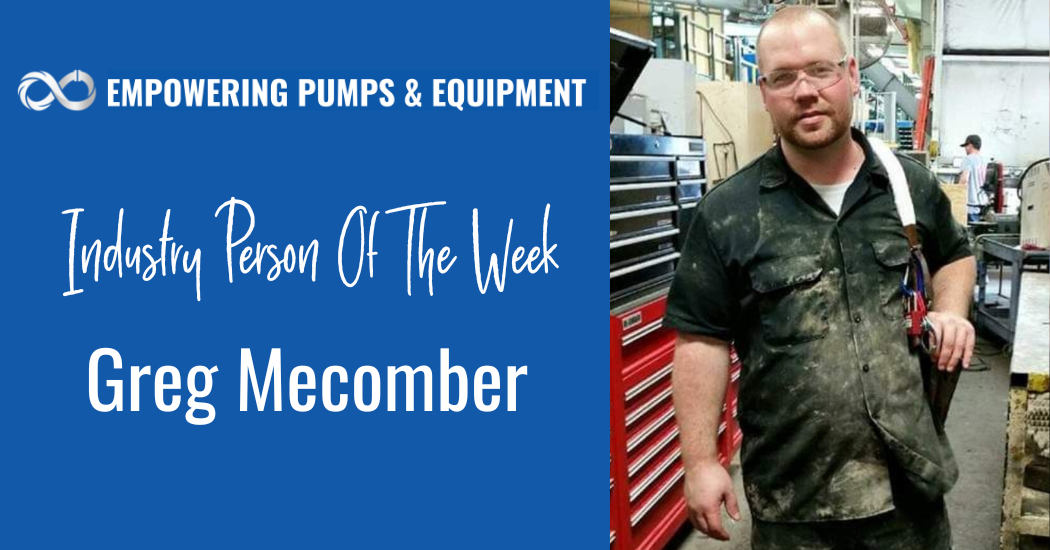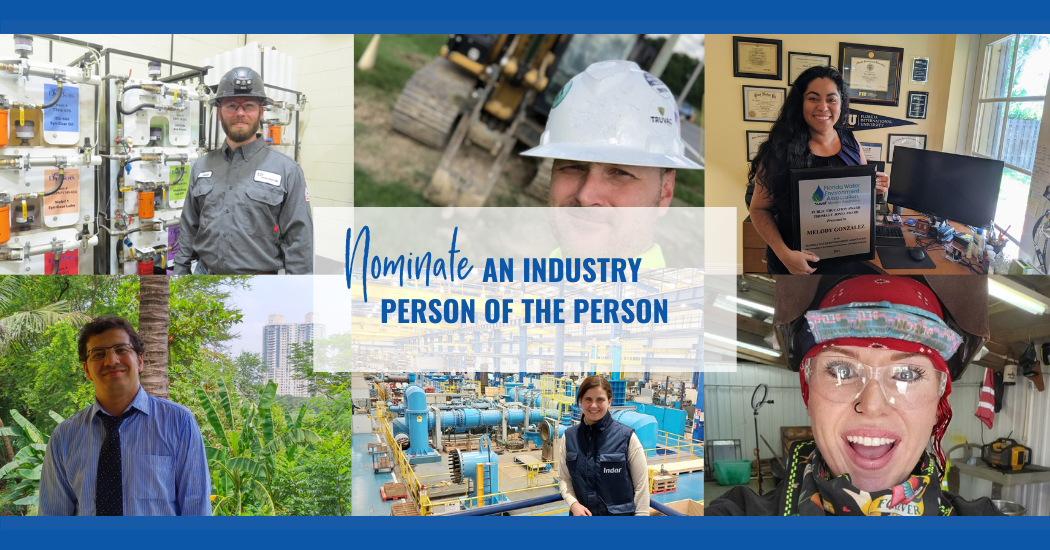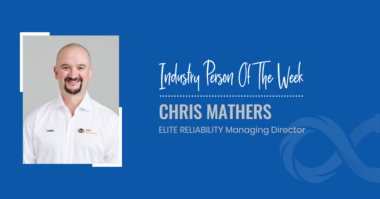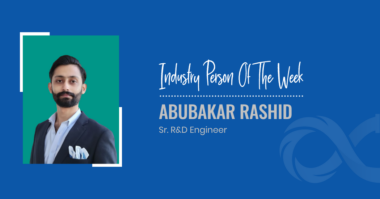Our Industry Person of the Week is Greg Mecomber, Maintenance & Reliability Consultant at IDCON INC.
Q: How did you get started in your field?
Greg: Maintenance was not the career eighteen-year-old me would have picked. Not only did my grades and aptitude for certain subjects give me the hope of a notable career in a field such as law and politics; my impression of the maintenance field, up to that point in my life, was mostly a disgruntled mop wielding gentleman who fixed the toilets in the elementary school hallway by permanently attaching an “out of order” sign to it or the man with the unkempt beard and loamy skin who smelled greatly of lithium grease and cigarettes and faintly of stale cheap whiskey and day old sweat, but showed great ingenuity and consistently got a few more miles out of our lawnmower each time we dropped it off –not that there is anything inherently wrong with that, it just wasn’t what I had pictured for myself.
After spending several years in university majoring in everything from philosophy to political and neurosciences, the only consistent elements in my life were boredom and under-employment. My G.I. Bill was running low; I had to find a way to show something for all those enlisted years, so I enrolled in a two-year bio-medical equipment repair course at Pearl River Community College. Towards the end of my first semester, I was informed that they were discontinuing that program(my luck of course), but there IS Instrumentation & Controls program as well as an Electronics program which had many of the same course requirements, some of which I had already taken –I ended up triple majoring.
Upon graduation, I naively expected to just slide into an engineering role or a cushy position repairing ventilators at a local hospital… This proved to be far from the truth. In fact, it turned out to be the rule rather than the exception. As someone green to the field with little experience and none of it relevant, I was finding it just as difficult to find any work in the maintenance field. (You know the old entry-level position with five years experience situation?) Some folks I graduated with were lucky enough to find robotics tech jobs right after finishing school. Instead, I took a temp position wiring control panels to keep a roof over my head and a few months later I was hired for my first industrial maintenance job.
I had applied and interviewed at dozens of places with no responses. The only reason I got my first gig was because the maintenance supervisor walked out a few minutes before I arrived and the maintenance manager was too busy and moreover uninterested in showing to my interview, so the HR manager hired me out of frustration, but “Hey!” I finally got my foot in the door and could gain some experience… and what an experience it was!
Q: What do you love most about your job? What are you most proud of?
Greg: What I love most about my job (there are many things really) is that I get to do many of the things I’ve strived to do, such as finding quantitative ways to improve, solving problems and having something concrete from which you can stand back and take in with a sense of accomplishment be it with a team or alone. It’s like I get paid to solve puzzles and there are always new ones to keep me on my toes and flexible. Secondly, I’m always learning. I get to constantly meet new people and hear about and learn from their experience and perhaps, if I’m lucky, I can help them learn something from mine. Finally, I get to have time to spend with family, enjoying the salty air, hot pit beef (hold the Tiger sauce) and a cold Natty Boh.
In regard to what I am most proud of, I am proud that I have been able to mentor several people along the way who were finding themselves in the same situations I was in not long before.
Q: What advice would you give someone?
Greg: Be prepared to start off at someplace awful. My first job had me doing all the grunt work outside in the elements, in a poisonous steam with no safety gear or lying in retch inducing fluids that were two inches deep and don’t wash off. Hopefully, you don’t have to start this low, but this might be your reality too. Location has a lot to do with this as well. Some regions have more maintenance workers than jobs while others are the opposite and you’ll probably have a better chance of starting off slightly better in a less saturated market than I was in.
Night shift is awful for your health, regardless of what some people claim. My advice is to get off of the night shift as soon as you can. The best way to do that is by moving up the ladder and not by gaining seniority through employee attrition. Learn as much as you can on various topics, become an efficient and effective troubleshooter, seek out opportunities to grow, propose and lead a small project, gain certifications like the CMRP and in areas such PLCs and vibration analysis as these are some of those in highest demand by employers.
Be sure to make friends along the way. I can’t tell you how many times I’ve ran into people I’ve worked with clear on the other side of the country. And if you are very new, own up to your mistakes and value the advice of the senior tradespeople (even if it is a bit abrasive in delivery), close your mouth and listen, view them as a mentor because they will be the ones putting in a good word for you in the future. I don’t have it all figured out and I’m not sure that anyone does, this is just my two cents worth.
Q: Can you talk about a project?
Greg: Our projects often focus on assets –both equipment and people. Every process is the sum of its equipment and every piece of equipment is the sum of its components. Just as every department at a plant has to be made up of the right components that will work together reliably for a common primary objective. A component doesn’t service another’s needs, they work in partnership. Expanding on that concept, this is why many organizations break down –they don’t work as a partnership and have competing priorities –but I digress.
There are no shortage of projects at IDCON INC, but some of the most recent projects have been building a bill of materials, asset hierarchy and preventive maintenance inspection routes for a client. Often it is time and resources that are a company’s biggest challenge and constraint and that is where they team and I really shine; we make it possible for a client to get the foundation, the things they know they need to do, accomplished so they can start their journey to world-class reliability.
Q: Anything else you would like to add?
Greg: You can’t control what doors open, but you CAN take the initiate and walk through the ones that do. Sometimes opportunity knocks on your door, but most times you have to be willing to do the knocking –go out and find some doors. “No valid plans for the future can be made by those who have no capacity for living now.” –Alan Watts
Be sure to reach out, I hope we can work together someday!





